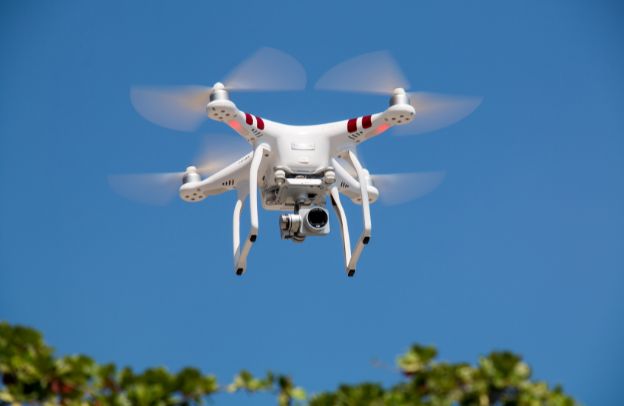Transforming African Agriculture: The Role of Digital Technologies in Driving Growth and Sustainability

Africa’s agricultural sector stands at a critical juncture, poised for transformation through the adoption of digital technologies. In recent years, the continent has witnessed a surge in digital innovations aimed at revolutionizing agricultural practices, enhancing productivity, and ensuring food security.
Want to learn more about storytelling? Start by downloading the first chapter of The Storytelling Mastery.
From remote sensing and blockchain to mobile applications and data analytics, digital tools offer unprecedented opportunities to address longstanding challenges and unlock the full potential of African agriculture. But first, what is the potential of African agribusiness? Let’s start from there.
The Potential of African Agribusiness
Africa’s agribusiness sector is on track to achieve remarkable heights, projected to surge to an impressive US$1 trillion by the year 2030, driven by the continent’s abundant agricultural resources.
This growth trajectory heralds a significant transformation, as highlighted by participants at the African Investment Forum, who likened agribusiness to the ‘new oil’ for Africa.
This characterization underscores the pivotal role agriculture is poised to play in driving economic progress, with agribusiness emerging as a potent engine for fostering inclusive growth across the continent.
The forecasted expansion of Africa’s agribusiness sector not only signifies immense economic potential but also holds promise for addressing various developmental challenges.
As agribusiness gains prominence, it is expected to catalyze job creation, enhance food security, and stimulate rural development, thereby empowering communities and narrowing socio-economic disparities.
With concerted efforts and strategic investments, Africa stands to harness its agricultural bounty to fuel sustainable and equitable growth, unlocking opportunities for prosperity and advancement for its people. but what is the role of technology in all of this? Let’s find out.
New technologies can help African farmers
New technologies can offer African farmers unprecedented opportunities to collect and leverage data for their agricultural practices.
With the proliferation of mobile devices and internet connectivity, farmers can access digital tools and platforms that enable them to gather a wide range of data on soil health, weather patterns, crop growth, and market trends.
See also Dr Jonathan Lanidune talks about Agricultural production in Ghana.
Mobile applications, sensor-based devices, and remote sensing technologies empower farmers to capture real-time information directly from their fields, allowing them to monitor conditions, identify challenges, and make data-driven decisions.
Emerging technologies such as drones and satellite imagery provide farmers with aerial views of their farms, enabling them to assess crop health, detect pests and diseases, and optimize resource allocation. In case you are wondering, here are five top mobile agriculture applications you can try out in Africa:
FarmCrowdy:
FarmCrowdy is a digital platform that connects small-scale farmers with sponsors who provide funding for their farming activities.
The app enables users to sponsor farms and track the progress of their investments remotely, fostering transparency and accountability in agricultural investments.
AgriApp:
AgriApp is a comprehensive mobile application designed to provide farmers with access to agricultural information, including weather forecasts, market prices, pest and disease management advice, and crop management tips.
The app aims to empower farmers with knowledge and tools to improve their productivity and profitability.
Esoko:
Esoko is a mobile platform that facilitates communication and collaboration among farmers, buyers, and other stakeholders in the agricultural value chain.
The app enables users to access market information, connect with potential buyers, and negotiate prices, ultimately helping farmers to sell their produce more efficiently and profitably.
Kilimo Salama:
Kilimo Salama is an innovative mobile insurance app that offers weather-based insurance to smallholder farmers in Africa.
Farmers can purchase insurance coverage through the app to protect their crops against weather-related risks such as drought, excessive rainfall, or hailstorms, providing them with financial security and peace of mind.
M-Farm:
M-Farm is a mobile platform that connects farmers with markets and provides them with real-time market prices for their produce.
The app also offers features such as agricultural input sourcing, crop management advice, and access to extension services, empowering farmers to make informed decisions and optimize their market opportunities.
By harnessing these applications and other new technologies for, maybe data collection, African farmers can overcome long-standing barriers to information access and improve the efficiency and productivity of their agricultural practices.
Digital tools enable farmers to gather accurate and comprehensive data on various aspects of their operations, enabling them to better understand their fields and make informed decisions. Yes, there are some challenges to address and there are no two ways about that.
Challenges to Scale
Despite the promise of digital technologies, African governments face significant challenges in scaling up their adoption across the agricultural sector.
You can find these challenges in the form of limited access to digital infrastructure, including electricity and internet connectivity. All these pose a barrier to widespread adoption, particularly in rural areas where most farmers reside.
Moreover, low levels of digital literacy among farmers and inadequate technical support can further hinder the uptake of digital solutions for agribusiness.
Government Initiatives and Use Cases
Recognizing the transformative potential of digital technologies, governments across Africa are increasingly investing in initiatives to drive agricultural innovation.
By partnering with private sector players and development partners, governments are implementing a range of use cases to accelerate the adoption of digital solutions in agriculture.
One such initiative involves the digitization of farmer subsidies, leveraging e-wallets and mobile payment systems to ensure efficient and transparent distribution of financial support.
By streamlining subsidy delivery, governments can increase the affordability of agricultural inputs for smallholder farmers, thereby enhancing productivity and income levels.
Another critical use case is the development of digital agricultural advisory services, providing farmers with timely and personalized information on crop management, weather patterns, market prices, and pest control.
See also Unlocking Nigeria’s Agricultural Potential: A Path to Food Security.
Think for example of the case of Ethiopia where Digital Agricultural Advisory Services (DAAS) aims to improve smallholder productivity. They intend to increase incomes and enhance the livelihoods of 3.5 million Ethiopian smallholder farmers through cost-effective and targeted extension and advisory services.
That is just one of the ways of transforming culture and agribusiness in Africa.
Through mobile applications and SMS-based platforms, farmers can access expert advice tailored to their specific needs, enabling them to make informed decisions and improve yields.
Impact of Digital Solutions:
The adoption of digital technologies is already yielding tangible benefits for African farmers, leading to higher incomes, increased agricultural output, and improved food security.
By leveraging data analytics and remote sensing technologies, farmers can optimize resource allocation, minimize crop losses, and maximize yields.
In addition, digital marketplaces and supply chain management systems facilitate efficient trading and distribution of agricultural products, reducing post-harvest losses and ensuring fair prices for farmers.
Make no mistake about it. Digital technologies hold immense potential to address key challenges and drive positive change in African countries. Here are three ways digital technologies can significantly improve the situation:
Access to Agricultural Information and Advisory Services:
Digital technologies can provide farmers with access to timely and relevant agricultural information and advisory services, thereby empowering them to make informed decisions and improve productivity.
Mobile applications, SMS-based platforms, and interactive voice response (IVR) systems can deliver agronomic advice, weather forecasts, market prices, and pest management strategies directly to farmers’ mobile phones.
By leveraging digital platforms, farmers can gain valuable insights into best practices, crop management techniques, and market trends, enabling them to optimize resource allocation, minimize risks, and maximize yields.
Improved access to agricultural information can also enhance resilience to climate change and mitigate the impact of adverse weather conditions on crop production.
Market Linkages and Financial Inclusion:
Digital technologies can facilitate market linkages and financial inclusion for smallholder farmers, who often face challenges in accessing formal markets and financial services.
Mobile-based trading platforms, e-commerce marketplaces, and digital payment systems can enable farmers to connect with buyers, negotiate prices, and sell their produce directly to consumers or agribusinesses.
By bypassing traditional intermediaries and reducing transaction costs, digital marketplaces create opportunities for farmers to capture a greater share of the value chain and increase their incomes.
Moreover, mobile money services and digital payment solutions enable farmers to access credit, savings, and insurance products, thereby improving financial resilience and enabling them to invest in agricultural inputs and equipment.
Data-Driven Decision-Making and Precision Agriculture:
Digital technologies can enable data-driven decision-making and precision agriculture, revolutionizing how farmers manage their operations and optimize resource use.
Remote sensing technologies, satellite imagery, and drones can collect real-time data on soil health, crop growth, and environmental conditions, allowing farmers to monitor field conditions and identify areas for improvement.
Advanced analytics and machine learning algorithms can analyze large volumes of data to generate actionable insights, such as optimal planting times, irrigation schedules, and fertilizer applications.
By adopting precision agriculture techniques, farmers can increase efficiency, reduce input costs, and minimize environmental impact, leading to sustainable agricultural practices and improved food security.
So, learn to tap into digital technologies for transformative opportunities. It will help to improve the situation in African countries by providing access to agricultural information and advisory services. It equally helps to facilitate market linkages and financial inclusion and enables data-driven decision-making and precision agriculture.
Case Study: Digitized Food Balance Sheet in Kenya:
A compelling example of the transformative power of digital technologies is the digitized Food Balance Sheet (FBS) implemented by the Kenyan government. See McKinsey & Company’s publication: How digital tools can help transform African agri-food systems.
This innovative tool enables real-time monitoring of food deficits, production levels, commodity prices, and trade volumes, providing policymakers with invaluable insights to support evidence-based decision-making.
See also Harnessing AI Power: Driving Business Growth through Data, Personalization, and Automation
By digitizing the FBS, Kenya has been able to reduce spending on food reserves by up to 3 percent annually while improving the accuracy and reliability of agricultural data.
Moreover, the digitized FBS serves as a catalyst for private sector investment by providing transparent market information and facilitating informed decision-making.
Conclusion on Transforming African Agriculture
In conclusion, digital technologies are the game-changer in African agriculture, offering unprecedented opportunities to drive growth, enhance sustainability, and ensure food security.
However, realizing the full potential of digital agriculture requires concerted efforts from governments, private sector actors, and development partners to address key challenges and scale up innovative solutions.
By prioritizing investments in digital infrastructure, promoting digital literacy, and fostering collaboration between stakeholders, African countries can unlock the transformative power of digital technologies and usher in a new era of agricultural prosperity.
Want to learn more about storytelling? Start by downloading the first chapter of The Storytelling Mastery.




